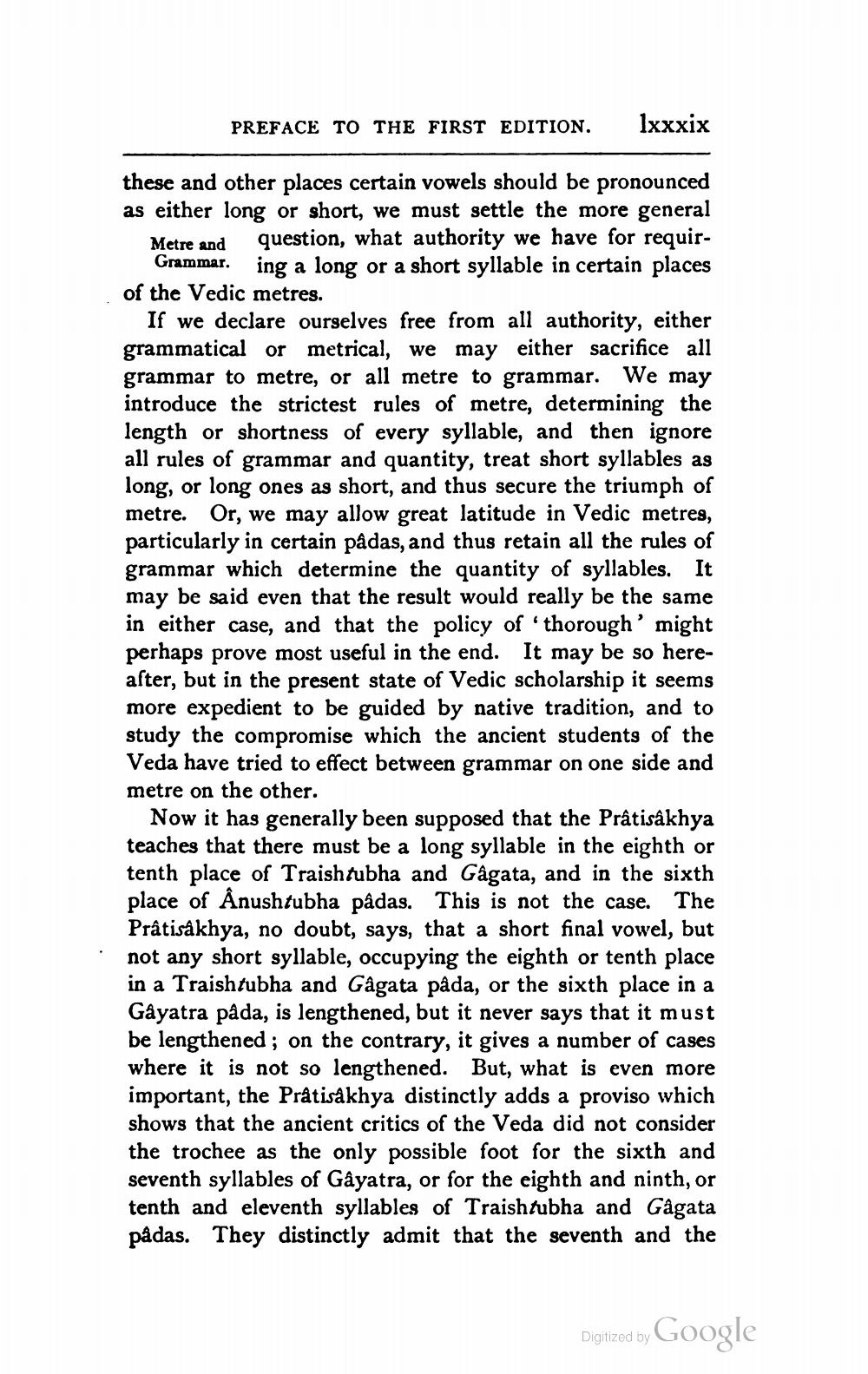________________
PREFACE TO THE FIRST EDITION.
Ixxxix
these and other places certain vowels should be pronounced as either long or short, we must settle the more general
Metre and question, what authority we have for requir
Grammar. ing a long or a short syllable in certain places of the Vedic metres.
If we declare ourselves free from all authority, either grammatical or metrical, we may either sacrifice all grammar to metre, or all metre to grammar. We may introduce the strictest rules of metre, determining the length or shortness of every syllable, and then ignore all rules of grammar and quantity, treat short syllables as long, or long ones as short, and thus secure the triumph of metre. Or, we may allow great latitude in Vedic metres, particularly in certain padas, and thus retain all the rules of grammar which determine the quantity of syllables. It may be said even that the result would really be the same in either case, and that the policy of thorough' might perhaps prove most useful in the end. It may be so hereafter, but in the present state of Vedic scholarship it seems more expedient to be guided by native tradition, and to study the compromise which the ancient students of the Veda have tried to effect between grammar on one side and metre on the other.
Now it has generally been supposed that the Prâtisâkhya teaches that there must be a long syllable in the eighth or tenth place of Traishrubha and Gågata, and in the sixth place of Anushtubha pâdas. This is not the case. The Prâtisåkhya, no doubt, says, that a short final vowel, but not any short syllable, occupying the eighth or tenth place in a Traishtubha and Gågata pâda, or the sixth place in a Gayatra pâda, is lengthened, but it never says that it must be lengthened ; on the contrary, it gives a number of cases where it is not so lengthened. But, what is even more important, the Prâtisakhya distinctly adds a proviso which shows that the ancient critics of the Veda did not consider the trochee as the only possible foot for the sixth and seventh syllables of Gâyatra, or for the eighth and ninth, or tenth and eleventh syllables of Traishtubha and Gâgata pâdas. They distinctly admit that the seventh and the
Digitized by Google




